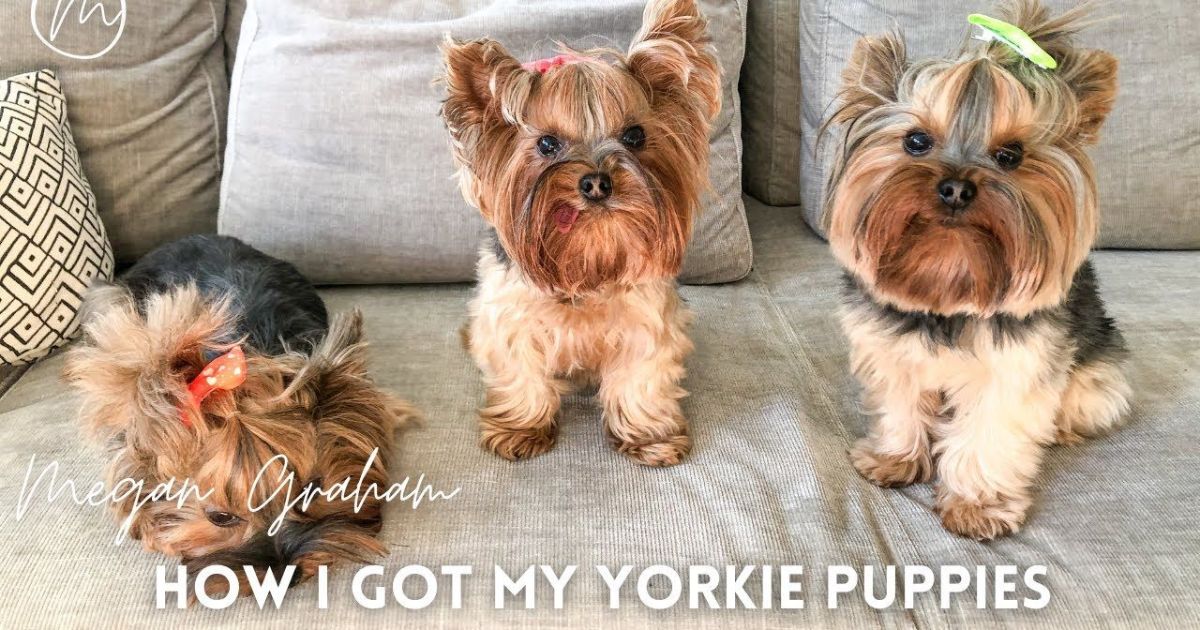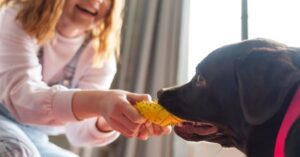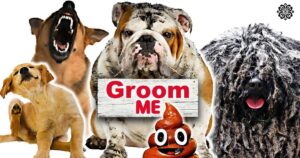Yorkie pricing refers to the cost of purchasing a Yorkshire Terrier. Factors like breeder reputation, location, and dog lineage influence the price.
Thinking about getting a Yorkie? These adorable pups come with a variety of price tags. Understanding Yorkie pricing helps you make an informed choice. Let’s dive into what affects those costs!
Yorkshire Terriers typically range from $1,500 to $3,000. Factors like breeder quality and dog health play a big role in determining price. Additionally, pedigree can significantly influence the cost. Always research before buying to ensure a healthy companion!
Understanding Yorkie Pricing
- Breeder Reputation: A reputable breeder invests in their dogs’ health and care. This dedication often leads to higher prices but ensures quality.
- Location: Prices can vary greatly depending on your area. Urban regions tend to have higher costs due to demand and living expenses.
- Pedigree: Dogs from champion bloodlines are usually more expensive. A strong pedigree adds value and often indicates better health.
- Health Testing: Responsible breeders conduct health tests for their Yorkies. This practice ensures that puppies are less likely to have genetic issues.
- Coat Color: Unique coat colors, such as chocolate or blue, can increase the price. Rare colors attract buyers willing to pay more.
- Size: Tiny Yorkies often fetch higher prices. Their rarity and charm make them particularly desirable to many owners.
- Registration: Puppies registered with the AKC (American Kennel Club) typically cost more. Registration assures buyers of the dog’s lineage and quality.
- Age: Younger puppies usually come with a steeper price tag. Many people prefer to train and bond with a puppy from an early age.
- Demand: The popularity of Yorkies influences pricing significantly. High demand can lead to increased prices as more people seek these adorable dogs.
- Training: Puppies with some basic training may have a higher cost. This investment saves new owners time and effort in teaching commands.
Biewer Terriers and Yorkshire Terriers: Unraveling the Differences
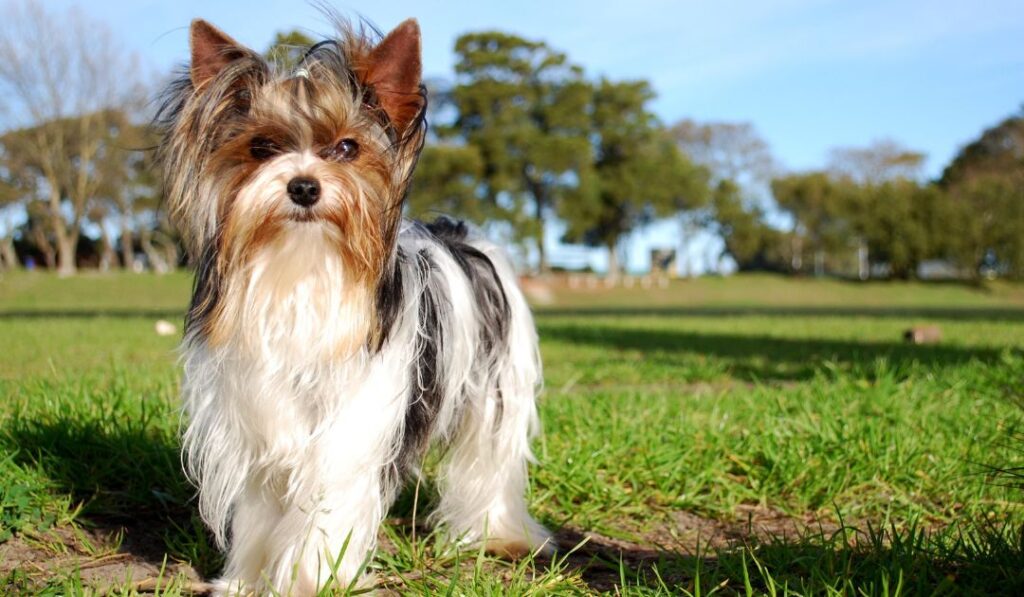
Biewer Terriers and Yorkshire Terriers share a common ancestry, but they exhibit distinct characteristics. While both breeds feature long, silky coats, Biewers are known for their striking tri-color patterns, often displaying a mix of black, white, and tan.
In contrast, Yorkshire Terriers typically flaunt a blue and gold color scheme. Size-wise, Biewers tend to be slightly larger, making them stand out in terms of stature. Overall, these differences contribute to their unique appeal among dog lovers.
| Feature | Biewer Terrier | Yorkshire Terrier |
| Coat Color | Tri-color (black, white, tan) | Blue and gold |
| Size | Slightly larger (around 4-8 lbs) | Smaller (around 4-7 lbs) |
| Origin | Developed in Germany in the 1980s | Originated in England in the 1800s |
| Temperament | Playful, friendly, and affectionate | Energetic, confident, and bold |
| Grooming Needs | Requires regular grooming | Needs consistent grooming |
How to Avoid Yorkie Scams
Buying a Yorkie can be exciting, but you must stay vigilant. Scammers often create fake listings to lure unsuspecting buyers. Always research the breeder before making a purchase. Check reviews and ask for references to ensure they are legitimate.
Here are some tips to help you avoid scams:
- Look for breeders who provide health guarantees.
- Visit the breeder’s facility in person whenever possible.
- Be cautious of prices that seem too good to be true.
- Trust your instincts if something feels off.
Never rush into a decision. Legitimate breeders encourage you to visit and meet the puppies. They will happily answer all your questions. By taking these precautions, you can protect yourself and find a healthy Yorkie.
How to Potty Train a Yorkie
Potty training a Yorkie requires patience and consistency. Start by establishing a regular schedule for bathroom breaks. Take your puppy outside frequently, especially after meals and naps. Always use the same spot outside to help them recognize where to go.
Here are some tips to make potty training easier:
- Use positive reinforcement, like treats and praise.
- Watch for signs that your Yorkie needs to go, such as sniffing or circling.
- Be patient; accidents will happen.
- Clean up accidents promptly to avoid repeat behavior.
Stay calm and consistent during the training process. If your Yorkie has an accident indoors, don’t scold them. Instead, guide them to the correct spot. With time and effort, your Yorkie will learn to potty outside.
Hypoglycemia in Yorkies
Hypoglycemia is a serious concern for Yorkies, especially in puppies. This condition occurs when their blood sugar levels drop too low. Symptoms can include weakness, trembling, and lethargy. If you notice these signs, seek veterinary care immediately.
To prevent hypoglycemia, feed your Yorkie small, frequent meals. Choose high-quality dog food that meets their nutritional needs. Keep treats on hand to quickly raise their blood sugar if needed. Regular vet check-ups will help monitor their health and prevent issues.
The Influence of Breed Popularity on Yorkie Pricing
The popularity of the Yorkshire Terrier significantly impacts its pricing. As more people desire Yorkies, prices tend to rise. This high demand leads to increased interest from breeders and potential buyers. When a breed gains fame, it can quickly become a trend.
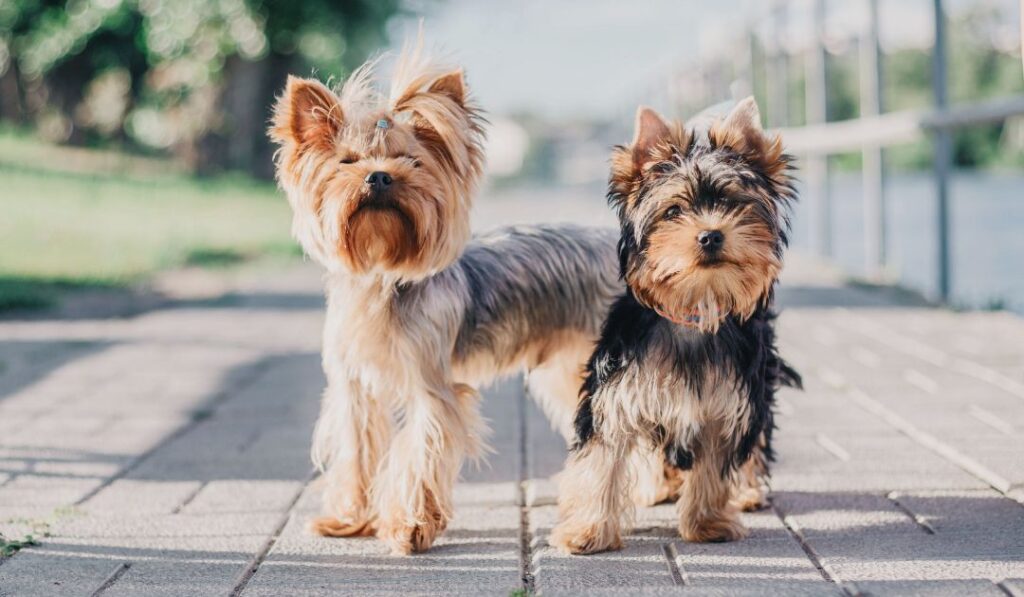
Additionally, popular Yorkie variations can affect costs. For example, unique colors or smaller sizes often command higher prices. Buyers may pay a premium for puppies that stand out. Understanding these trends helps you make an informed decision when purchasing a Yorkie.
The Role of Size in Yorkie Pricing: Standard vs. Teacup Yorkies
The size of a Yorkshire Terrier plays a significant role in its pricing. Teacup Yorkies are often more expensive than standard-sized Yorkies. Their rarity and smaller size attract many buyers willing to pay a premium. Understanding these differences helps you navigate the market better.
Here’s a comparison of Standard vs. Teacup Yorkies:
| Feature | Standard Yorkie | Teacup Yorkie |
| Weight | 4 to 7 pounds | 2 to 4 pounds |
| Height | 7 to 8 inches | 5 to 7 inches |
| Price Range | $1,500 to $2,500 | $2,500 to $5,000 |
| Health Risks | Generally fewer health issues | More prone to health complications |
Teacup Yorkies require extra care due to their delicate size. Buyers should consider the added responsibility when choosing between the two. By understanding these factors, you can make a more informed decision about which Yorkie fits your lifestyle.
Health Screenings and Vaccinations: A Critical Pricing Factor
Health screenings and vaccinations are essential when purchasing a Yorkshire Terrier. These factors play a significant role in determining the overall price of the puppy. Responsible breeders prioritize the health of their dogs, conducting thorough health checks. By ensuring vaccinations are up to date, they protect the puppies from serious diseases. This commitment often leads to higher costs but gives buyers confidence in their choice.
Here’s a breakdown of critical health factors affecting pricing:
| Factor | Description | Price Impact |
| Vaccinations | Essential shots protect against disease | Can add $100 to $300 |
| Health Screenings | Tests for genetic conditions | This may increase costs by $200 |
| Microchipping | Helps recover lost pets | Typically $50 to $100 |
| Vet Check-ups | Initial health exam post-purchase | Usually around $100 |
Investing in health screenings and vaccinations ensures a healthy start for your Yorkie. Always ask breeders for documentation of these procedures before making a purchase. By prioritizing these factors, you not only protect your investment but also promote the well-being of your new furry companion.
Unique Coat Colors and Their Impact on Yorkie Prices
Unique coat colors significantly influence the pricing of Yorkshire Terriers. While standard colors, like blue and gold, typically range from $1,500 to $2,500, rare variations can command much higher prices. Colors such as chocolate, lilac, and blue and tan are particularly desirable among buyers. Their scarcity often leads to a premium price tag, reflecting their appeal.

Additionally, unique colors can enhance a Yorkie’s resale value. Owners of Yorkies with rare coat colors may find it easier to sell their pets in the future. Many buyers seek these distinctive shades for their aesthetic charm. As a result, investing in a Yorkie with a unique coat color can be both a rewarding and financially smart choice.
The Standard Coloration
The traditional Yorkshire Terrier features a distinctive blue and gold coat. This classic coloration remains popular among buyers. Standard colors often come with a lower price tag compared to unique variations. Understanding this helps you assess what to expect in terms of pricing.
Rare Color Variations
Yorkies can also have rare coat colors, such as chocolate, lilac, or blue and tan. These unique hues often attract buyers willing to pay a premium. The rarity of these colors can significantly increase the price. Many buyers seek out these special variations for their distinct appearance.
Price Range of Unique Colors
The price for Yorkies with unique coat colors can vary widely. While standard colors typically range from $1,500 to $2,500, rare colors can push prices up to $5,000 or more. This price increase reflects their desirability and scarcity. Always consider the color when budgeting for your new puppy.
Impact on Resale Value
Unique coat colors can also influence the resale value of a Yorkie. Owners may find it easier to sell a Yorkie with a rare color. Buyers often seek out unique colors for their aesthetic appeal. This factor can make unique-colored Yorkies a smart investment.
How Geographic Location Affects the Cost of a Yorkie
Geographic location plays a significant role in the pricing of a Yorkshire Terrier. In urban areas, demand for Yorkies often drives prices higher. Breeders in cities may charge more due to higher living costs and competition. Understanding this can help you budget effectively when looking for a Yorkie.
Here are some factors to consider:
- Urban Demand: Higher demand leads to increased prices in cities.
- Breeder Competition: More breeders in urban areas can inflate costs.
- Cost of Living: Higher living expenses in cities impact breeder pricing.
- Rural Affordability: Prices tend to be lower in rural areas.
- Limited Options: Rural areas may offer fewer breeders to choose from.
- Transportation Costs: Getting a Yorkie from a distant breeder may add to expenses.
- Local Regulations: Different areas have varying laws that can affect prices.
In contrast, prices may be lower in rural areas where demand is less intense. Breeders in these regions often have lower overhead costs, which can lead to more affordable prices. Always consider location when searching for the perfect Yorkie, as it directly impacts the overall cost.
The Cost of Breeding: How Expenses Influence Yorkie Prices
The cost of breeding significantly influences the pricing of Yorkshire Terriers. Responsible breeders face various expenses, including health screenings, vaccinations, and quality food for the puppies. These factors can elevate the overall price of Yorkies in the market. Additionally, breeders invest in proper facilities and veterinary care to ensure the health of their dogs. Understanding these costs helps buyers appreciate the true value behind each Yorkie.
- Health Screenings: Essential for detecting genetic issues, adding to overall costs.
- Vaccinations: Protecting puppies from disease incurs additional expenses.
- Quality Nutrition: Proper diet is crucial for healthy growth and development.
- Veterinary Care: Regular check-ups and emergency care increase breeding expenses.
- Facility Maintenance: Clean, safe environments are necessary for breeding success.
The Age and Training of Yorkies and Their Impact on Price
The age of a Yorkshire Terrier significantly impacts its pricing. Puppies typically cost more than older dogs due to their popularity and demand. Buyers often prefer younger Yorkies for training and bonding opportunities. Understanding this factor helps you navigate pricing effectively when looking to buy a Yorkie.
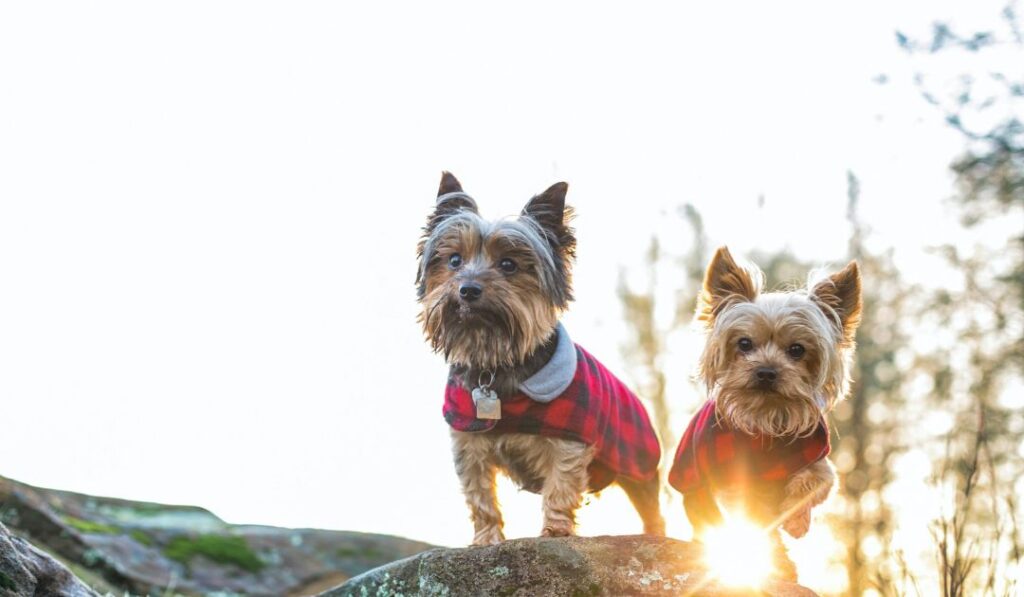
Training also plays a crucial role in determining a Yorkie’s price. Well-trained Yorkies can command higher prices due to their developed skills and ease of handling. Buyers often seek puppies with basic training to reduce the time and effort needed. Ultimately, both age and training are essential considerations that influence the overall cost of a Yorkie.
The Value of Puppy Training
Training is essential for developing a well-behaved Yorkie. Puppies with basic commands often have higher price tags. Buyers appreciate the effort already put into training. This investment in training pays off in a smoother transition at home.
The Cost of Professional Training
Professional training can significantly impact the price of a Yorkie. Many breeders offer training as part of the package, increasing overall costs. This service helps ensure puppies are well-socialized and ready for their new homes. Buyers benefit from having a more manageable pet right from the start.
Age Considerations in Pricing
Age is a significant factor in Yorkie pricing. Younger puppies often attract higher prices due to their cuteness and potential. Older Yorkies may be less expensive but can provide immediate companionship. Buyers should weigh the pros and cons of age when making a decision.
Popularity of Puppy Age
The popularity of the puppy age can also affect pricing trends. Younger Yorkies are often in high demand, leading to inflated prices. This trend reflects a desire for new owners to train their pets from an early age. Being aware of these trends helps buyers make informed choices.
Long-Term Cost Considerations
When purchasing a Yorkie, consider long-term costs beyond the initial price. Factors like training, grooming, and healthcare can add up. Understanding these expenses helps you prepare for responsible pet ownership. Investing in a well-trained, healthy Yorkie pays off in the long run.
The Importance of Registration and Certifications in Yorkie Pricing
Registration and certifications are vital for determining the price of a Yorkshire Terrier. A registered Yorkie often commands a higher price due to the assurance of its lineage and breeding quality. Certifications from reputable organizations indicate adherence to high breeding standards. This documentation helps buyers invest in healthy, well-bred puppies, making it an essential consideration.
| Factor | Description | Price Impact |
| Registration | Confirms lineage and breeding quality | Increases price by $200+ |
| Health Certifications | Validates health screenings and vaccinations | Adds $100 to $300 |
| Breeder Reputation | Registered breeders usually have a solid track record | Higher prices expected |
| Genetic Testing | Reduces risk of inherited health issues | Can raise costs by $200 |
| AKC Registration | American Kennel Club registration adds value | Generally $50 to $150 |
| Documentation | Provides proof of responsible breeding practices | Essential for resale value |
| Quality Assurance | Ensures compliance with breeding standards | Justifies higher pricing |
| Investment Protection | Reduces risks associated with unregistered dogs | Long-term cost savings |
FAQs
What Factors Influence Yorkie Pricing?
Several factors affect Yorkie pricing, including the breeder’s reputation, location, and the dog’s lineage. The demand for unique colors and size variations also plays a significant role.
How Does Age Impact the Cost of a Yorkie?
Younger Yorkies typically cost more due to their popularity and demand for training opportunities. Older dogs may be less expensive but can offer immediate companionship.
Why Are Health Screenings Important in Pricing?
Health screenings ensure that Yorkies are free from genetic conditions and serious health issues. Responsible breeders include these costs, which can increase the overall price of the puppy.
How Does Registration Affect Yorkie Prices?
Registered Yorkies often command higher prices because they assure buyers of the dog’s lineage and breeding quality. Certifications from reputable organizations also enhance the puppy’s value.
What Role Does Training Play in Yorkie Pricing?
Well-trained Yorkies can be more expensive due to their developed skills and ease of handling. Buyers often prefer puppies with some training, which can justify a higher price.
Conclusion
Yorkie pricing is essential for prospective buyers. Various factors, including age, training, and breeder reputation, influence the cost. By considering these elements, you can make a more informed decision.
Additionally, registration and health screenings play a crucial role in pricing. Investing in a well-bred, healthy Yorkie pays off in the long run. Ultimately, knowing what affects Yorkie prices helps you find the perfect companion.
>>>Read More About:
Belgian Malinois: Essential Care and Maintenance
How Long Can a Dog Legally Bark? Understanding the Law

Emerson is an expert in the world of pets, specializing in understanding diverse breeds, nutrition, and health. His deep knowledge ensures your pets receive the best care, from balanced diets to top-notch health advice, keeping them at their happiest and healthiest.
